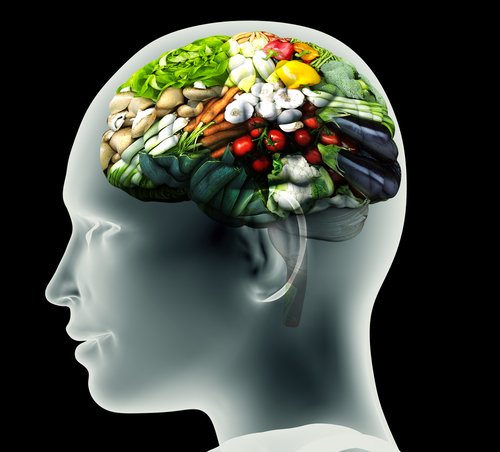Studies are suggesting that a healthy diet and good lifestyle choices can have a positive impact on one’s cognitive function later in life.
Nutritive compounds such as antioxidants, phytochemicals and the B vitamins are particularly of interest to scientists studying the effects of nutrition and cognition. Foods associated with these compounds include vegetables, fruits, whole grains, fish and legumes. In addition, it is believed that a diet high in processed meats, high-fat dairy foods and sugar may have a negative impact on cognitive health.
Many researchers are focusing on the Mediterranean diet in particular when it comes to maintaining cognitive function. The Mediterranean diet is rich in fruits, vegetables, olive oil, nuts, whole grains, red wine and fish.
Folate, a B-vitamin, can be found in high amounts in spinach and other dark, leafy greens, asparagus, black-eyed peas, lentils, and pinto, garbanzo and black beans. Vitamin B-12 is only found in animal products and fortified foods so doctors often recommend supplementing this vitamin.
In order to get the best variety of phytochemicals into the body, dietitians recommend choosing a diet that includes different fruits and vegetables from all different color palettes. Berries, apples, citrus fruits, leafy greens, carrots, squashes and cabbage for example, all offer their own unique blend of compounds that are important for brain health.
Combine the following ingredients to make a delicious Spinach Cranberry Salad. Dress your salad with a drizzle of olive oil and balsamic vinegar for a brain-healthy side salad. Add grilled chicken and turn your side dish into a meal.
Baby spinach leaves
Dried cranberries
Grape tomatoes
Cucumber slices
Chopped walnuts
Feta cheese crumbles
Written by Cara Zechello, M.Ed., RD, LDN
I will be available to meet with family member to address any concern or questions regarding dietary needs or special diet for their loved one. I can be reach at Dodge Park Rest Home number (508-853-8180).


